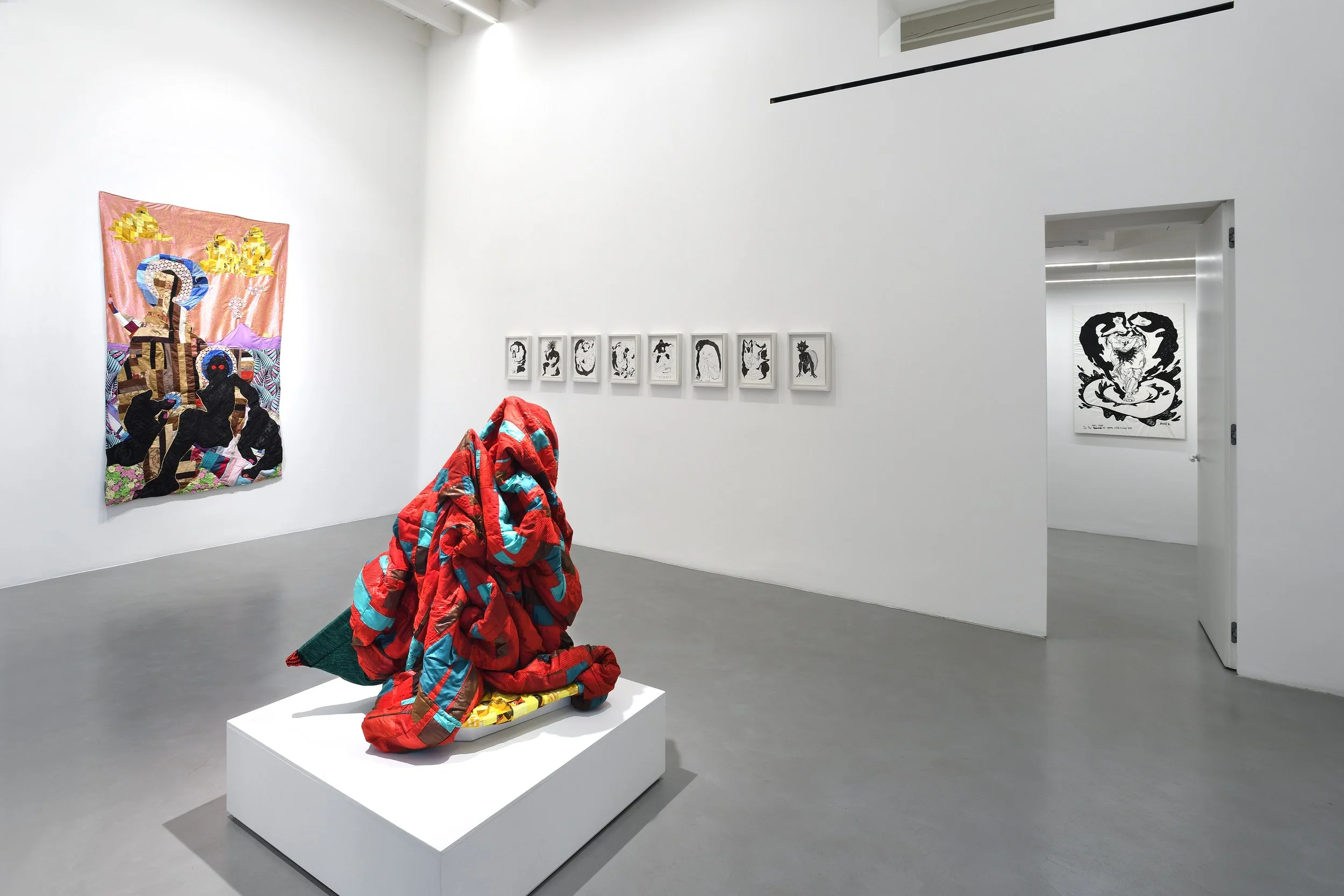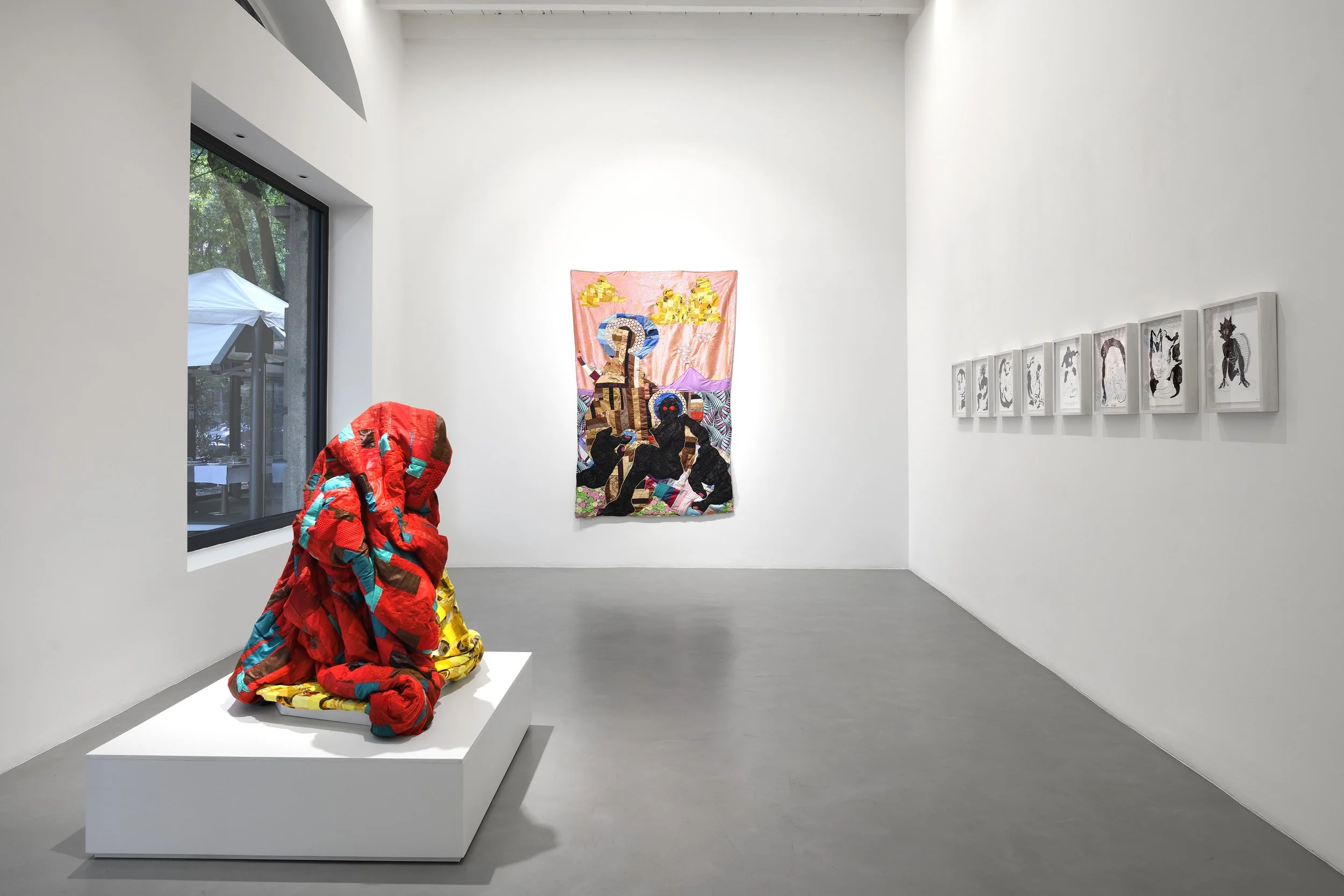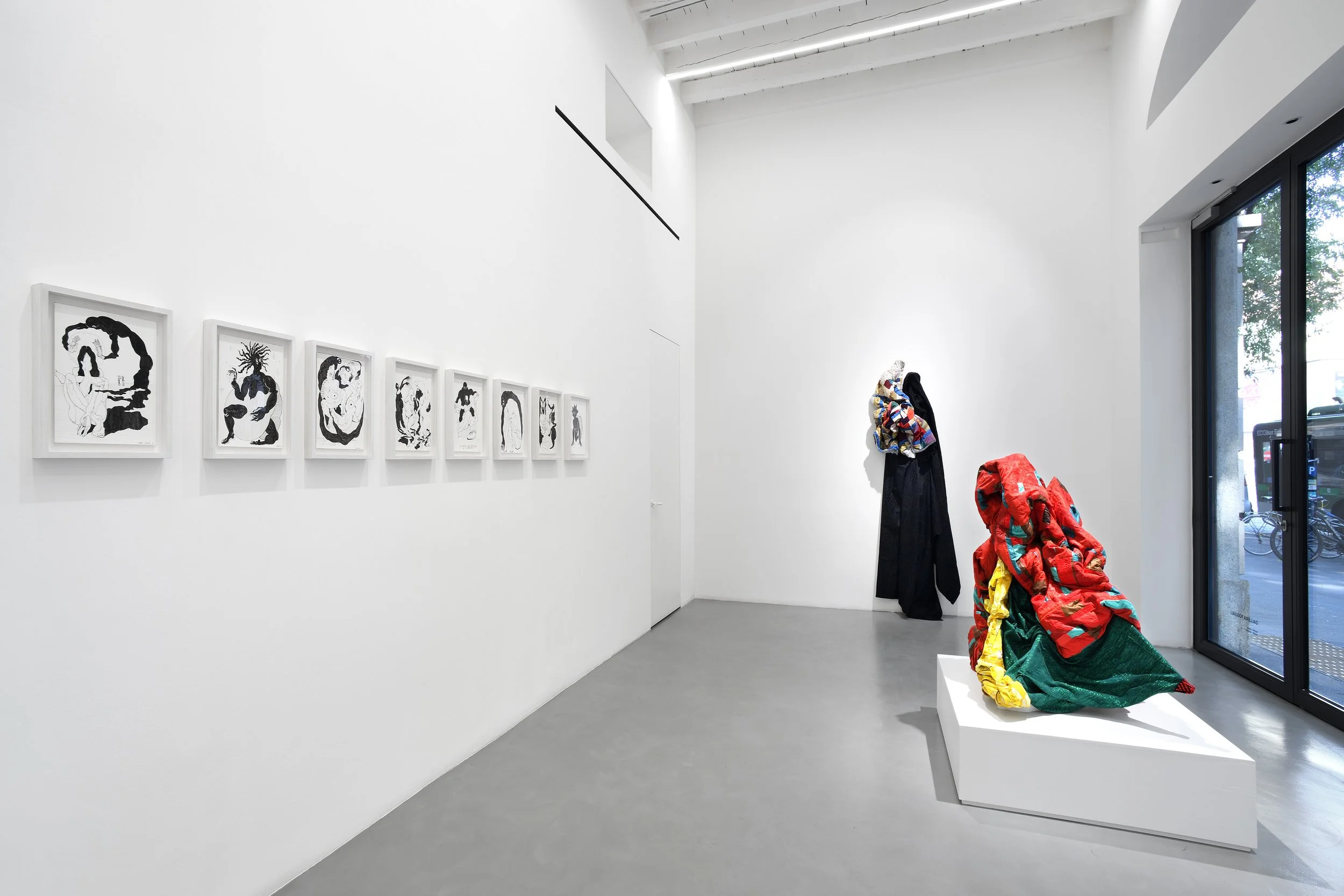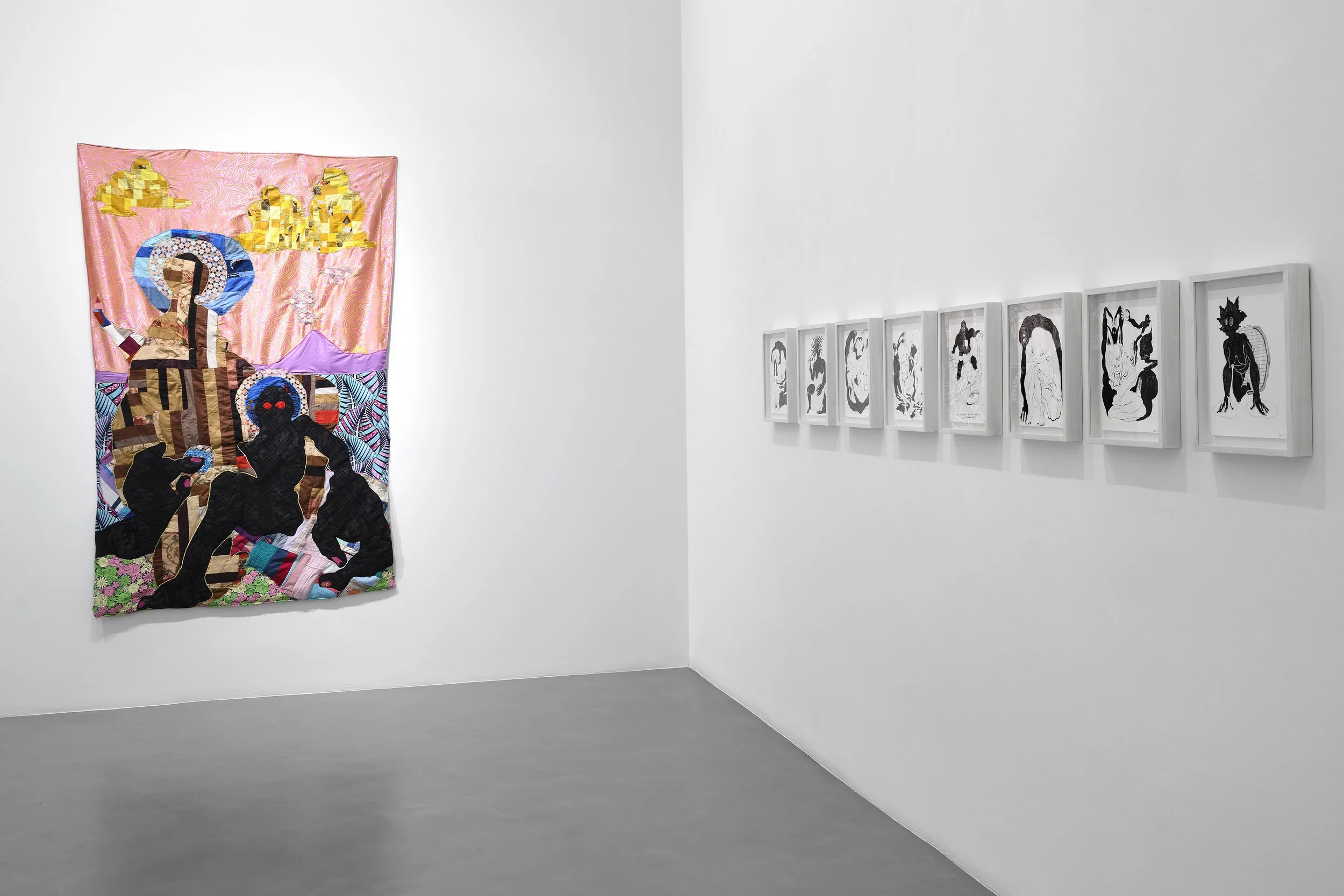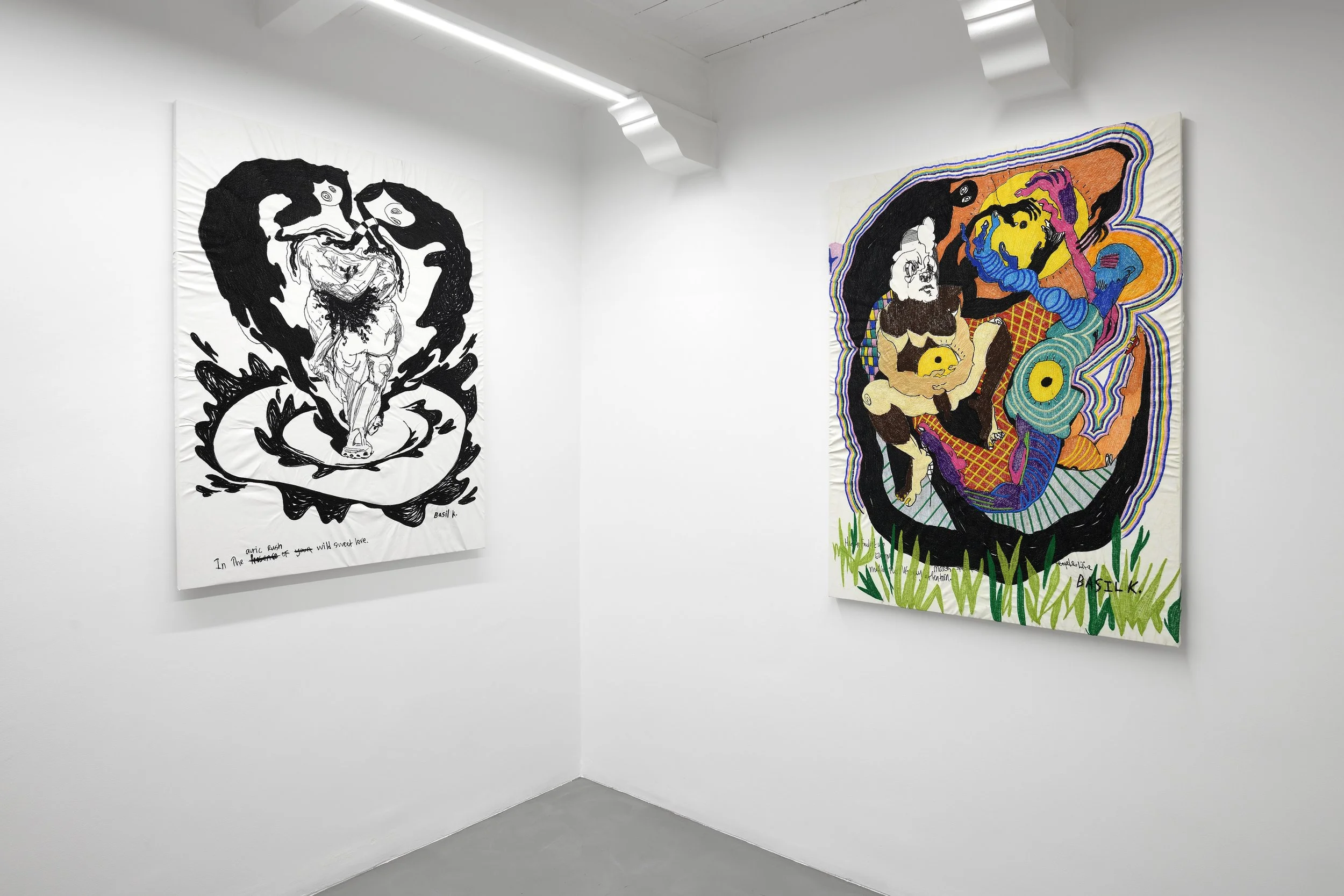The Rolling Fields to My House
Galleria Poggiali
Milan
2021
Driven by the quest to understand the texture of his own personal and cultural identity within the African diaspora, filtered through the superstructures of his American experience, artist Basil Kincaid (1986, St. Louis, Missouri) debuts a new body of works in the Milan headquarters of the Galleria Poggiali with his first Italian solo exhibition titled The Rolling Fields to My House.
Through collage, photography, installations, performance and, especially, the technique of quilting – made using found, salvaged or donated materials – Basil Kincaid questions social practices while designing alternative cultural fabrics. Resourcefulness and freedom of imagination emerge as critical components in the liberation of the spirit. Co-creating places that stimulate the ancestral memory of love understood as inborn freedom, activating space to participate in shared liberation on local and global scale.
The Rolling Fields to My House employs the practice of ‘world building’ to create belonging. The quilts, the sculptures and the drawings displayed in the exhibition represent the inner communication cultivated by the artist to arrive at a place that had meaning for the only black kid in a class of whites. Kincaid’s move to Ghana in 2020 allowed him to revisit worlds previously developed and realised in new formats. The black entity that appears in these works is a solid root of self and observer: an omniscient witness in harmony with all the versions of self permeates the exponential dimensions. Arguably, an ever-present body that planned to encounter and explore the polychromatic nature of the black diaspora identity in various terrains, this time in Italy.
In all his work, Basil focuses on how place moulds our perspective, the notion of belonging and the way in which we perceive. His work is made up principally of found or donated materials that have great emotional significance for those who once enjoyed them. The practice of quilting has a long history in his family, handed down over 7 generations. In the black cultural tradition, quilting has always served as a revolutionary space of joy, courage and community in direct contrast to social and financial subjugation. As Basil Kincaid explains: “It’s a way of honouring my predecessors while addressing the questions and concerns of where I am, where we are, today. It’s a way to restore and reconstruct with the resourcefulness innate within us.”
